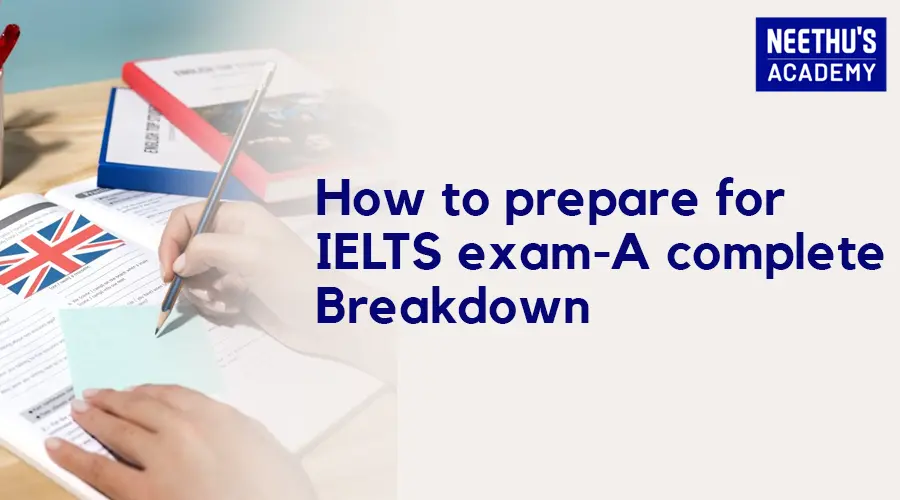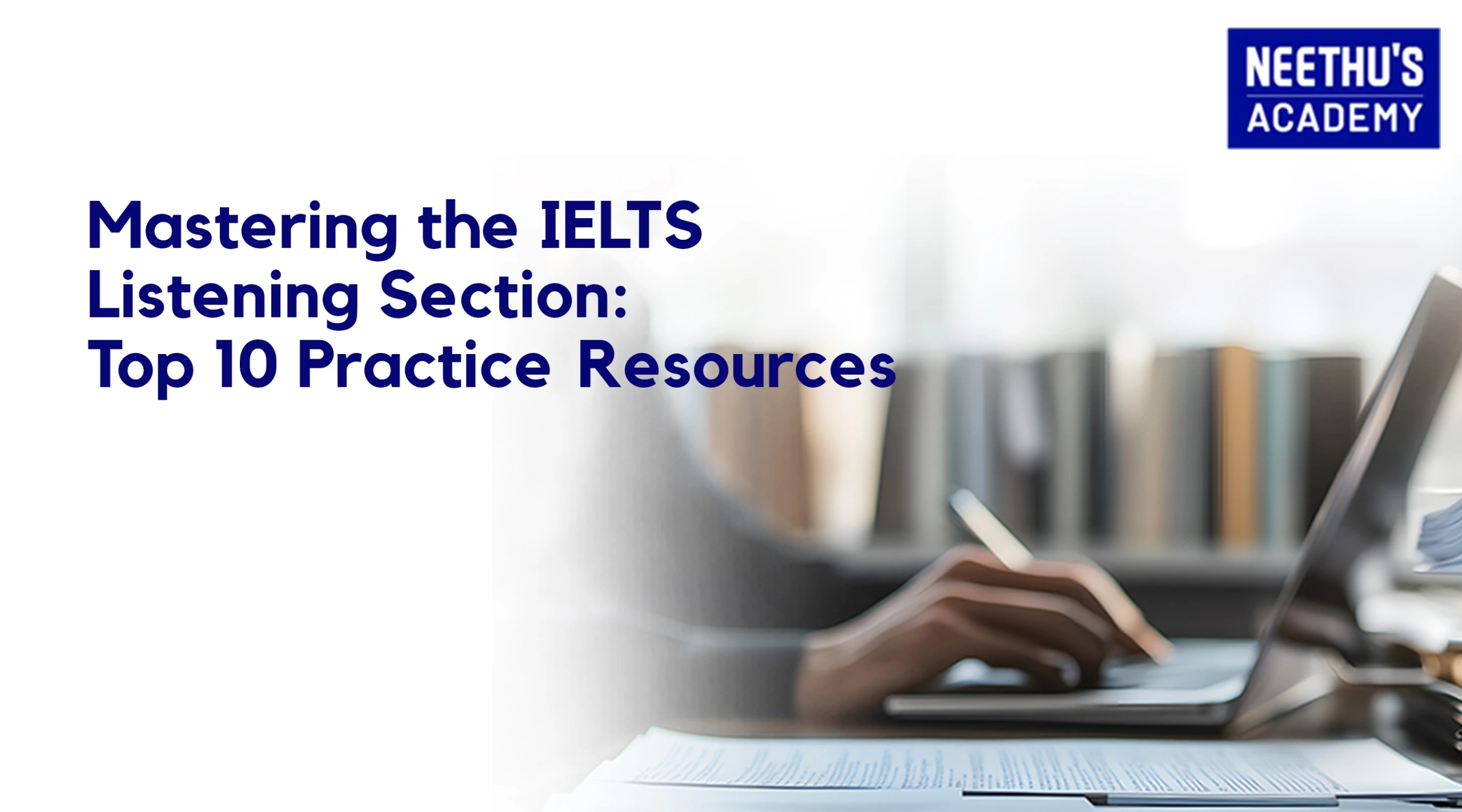How to prepare for IELTS: A complete breakdown
If you have ever planned to move to an English-speaking country, then you will have definitely heard about the IELTS test. The International English Language Testing System stands as the most popular English test with 4 million test takers every year. The test opens doors to many aiming to get a university admission, job or migrate to an English-Speaking environment. Passing the IELTS exam can become a daunting task without the right preparation strategy. This blog will guide you through a well structured IELTS exam preparation method that will help you achieve the score of your dreams!
Understanding the IELTS exam
Administered and run by the British Council in partnership with IDP and Cambridge Assessment English, the IELTS test is recognized by 12,000 organizations in over 140 countries. IELTS score is necessary for individuals planning to study in an English-speaking environment, work and migrate to an English- speaking country or to get a job in their own country where English proficiency is essential.
The IELTS test is available in two versions: IELTS Academics and IELTS General. The organizations or Institutes that accept IELTS will usually specify the type of IELTS required for the application. It is necessary to check beforehand with the organization you are applying to in order to check which version of the test to take. The key difference between both the version of the IELTS test are:
| Aspect | IELTS Academic | IELTS General Training |
|---|---|---|
| Purpose | This version of the test is for those who aim to attain University acceptance, and student visas and demonstrate their English proficiency to professional or educational organizations. | This version of the test is geared towards those planning to migrate or work in an English-speaking country. It is useful when applying for a position in an English-speaking company or organization. |
| Reading task | The academic reading task comprises longer texts that include complex vocabulary and abstract ideas. | The general training reading section consists of shorter, more straightforward texts focusing on understanding the gist and specific details. |
| Writing task | The academic writing sections require the candidates to write essays or depict visual information. | The general training writing section requires the candidates to write a letter. It is less formal compared to the academic equivalent. |
IELTS Exam Structure
Both the IELTS Academic and IELTS General training tests you based on four language skills: Listening, Writing, Reading and Speaking. Whether you take the IELST Academic or IELTS general training, you will be having the same Listening and Speaking tests. The Reading and Writing section will differ for IELTS Academic and IELTS General training as mentioned earlier. We’ll now discuss a quick outline of the IELTS Exam format.
IELTS Academic
- Listening: This section will assess how well you understand and recognize opinions and ideas. It consists of four recorded monologues and conversations which the candidate would have to carefully listen to and complete the tasks and questions that follow within a time frame of 30 minutes.
- Reading: This section includes three reading passages that are taken from books, journals, magazines or newspapers. The texts may include illustrations and graphs that need to be interpreted accurately and tasks are provided at the end.
- Writing: This section usually consists of two tasks. In the first task the candidate is made to summarize or describe a table, diagram or chart. The next task requires the test takers to complete a short essay of at least 250 words and complete the entire task with a time limit of 60 minutes.
- Speaking: This section involves a face-to-face interview with the examiner without any disruptions. The candidates should speak for a certain length of time-based on the given topic and have a well-structured discussion. The total time for this section can be anywhere between 11 to 14 minutes.
IELTS General Training
Listening: The listening section in IELTS General training is similar to the one in IELTS academic. It consists of four recorded monologues and conversations and the candidates have to complete the tasks and questions within a time limit of 30 minutes.
Reading: the IELTS General training reading section can be subdivided into three:
- Section A: Includes two or three short factual texts.
- Section B: Includes short work-related Paragraphs.
- Section C: Includes a longer text based on a subject of general appeal.
Reading sections in both the IELTS Academic and IELTS General training versions are provided with the same time limit of 60 minutes.
Writing: In this section the candidate has to complete two tasks within 60 minutes. First one is a letter writing task of at least 150 words and the second one involves writing a short essay of at least 250 words.
Speaking: Similar to the IELTS Academic speaking section, the candidate will have a face-to-face interview with the examiner, where they would have to speak on the given topic without any distractions or interruptions.
Step By Step Preparation Guide
Cracking the IELTS test will be manageable if you find a strategy and preparation plan that works for you. Remember, “There is more than one way to crack a nut”; whether you plan to self-study, join a preparation class or study group, there are multiple ways to achieve success and your dream score. The key is to find what works best for you and stick on to it. We will provide you a step by step guide on how to prepare for the IELTS exam that will definitely help boost up your score.
- Understand the Exam structure: Familiarize yourself with the IELTS exam structure and the four sections. Be thorough with the questions and tasks that will be asked in the Listening, Reading, Writing and Speaking sections.
- Set a score goal: Everyone has their own targets to work towards. Find out the score you need to work for by confirming with the institution, employer or organization. This will help you understand what you need to work for.
- Create a study plan: Make a strategic study plan and develop a schedule allocating time for each section based on your needs.
- Practice regularly: Regular practice with authentic resources and study materials not only improves your skills, but also boosts your confidence. Engage in regular English conversations, listen to audio recordings, read extensively and also practice writing essays to enhance your knowledge.
- Take mock tests: Mimicking the exam scenarios with full-length practice tests and completing the tasks within the time limit will make you familiar with the exam structure and make you confident on the test day.
Tips for Listening test
- Read the questions carefully before the recording starts. This will help you to keep up with the audio and identify the answers.
- Take note of the word limits given in the instruction. Writing more or less than the word limit means you will receive no marks at all.
- Listen carefully to keywords and synonyms from the questions to identify answers.
Tips for Reading test
- To perform well in the Reading test, practice reading a variety of English texts, this will help in reading texts quickly.
- It will be better to read the questions first before reading the passage. This will make it easier to find the answers.
- When answering questions from reading passages, make sure to spell everything correctly.
Tips for Writing test
- Evaluate the questions carefully and ensure your answer addresses all the points,
- Be careful of the word limit. You will lose marks if you write less than 150 words for task 1 and less than 250 words for task2.
- Make sure to write the answers in full, nut in note form or points.
Tips for Speaking test
- Take notes on what you think about the topic. This will help you remember what to say.
- Avoid taking long pauses while speaking. You can take a short moment to think, but don’t let too much time pass.
- Even if you forget a certain word, try to paraphrase or explain it. You will earn points for trying to express what you were thinking
Final preparation before the test day
- Review the rules: Go through the rules and information from your test center and make sure you are thorough with exam format.
- Practice test: Take full length practice tests under timed conditions to familiarize with the test.
- Stay relaxed and prepared: Get plenty of rest and take time to relax. Ensure you arrive at the test venue on time and be well prepared.
- Final checklist: The night before the test, ensure you have all the necessary documents ready (ID, test confirmation etc.)
Conclusion
To wrap things up, an effective IELTS preparation strategy involves knowing the test format, practicing frequently and concentrating on your weak areas. You can hone your skills, gain confidence and improve your vocabulary by using real and authentic materials and strategic study methods. Don’t forget to take good care of yourself as the exam date draws near, take plenty of rest and be ready to achieve your goals. You can open doors to new opportunities and reach your ideal score with the appropriate preparation and perseverance. Wishing you luck!
Frequently Asked Questions





